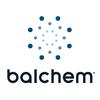Treating clinical mastitis: An alternative approach
Published: June 19, 2019
Source : Dr. Amit Kumar Pandey Ph.D. (VPT)
Mastitis is a multifactorial and costliest disease of all milk producing ruminants. Lack of scientific health care and managemental practices has been repeatedly high lightened for cause of mastitis. Early detection and a holistic approach is a bare need of days to combat mastitis in milch animals. The maintenance of hygienic environment, udder health and enhancement of udder immunity has been recommended for control of mastitis. The herbal medicine can be successfully employed for maintaining udder hygiene score and bear added advantage of being safe, effective and economical. Antioxidant like Vitamin E and selenium are known to play an important role in host defense mechanism and conferring udder immunity. Similarly macro and micro minerals like calcium, phosphorous, copper, cobalt, manganese maintains homeostasis maintain homeostasis thereby regulating inflammatory process.

Control of mastitis is a challenge because of multiple etiological agents. Due to increasing incidences of antibiotic resistance WHO has also emphasized on the use of medicinal plant as an alternative to antibiotic. Several herbal extracts have shown in vitro antibacterial activity versus major mastitis pathogens. Mastilep gel is one such herbal solution having both antimicrobial and symptomatic relief function such as anti-inflammatory & analgesic. We keep continuing our research studies through (Uniselit) for the treatment of clinical mastitis in goat was estimated alone and in combination with antibiotics clinical and field experiments to ascertain the efficacy of products at different situations. On this context we are having a clinical trial report in which the efficacy of the herbal gel (Mastilep) and mineral mixture. this context we are having a clinical trial report in which the efficacy of the herbal gel (Mastilep) and mineral mixture.
Six goats were taken in each group suffering from clinical mastitis with different infection rate and different treatments were applied as mentioned in the table. One group of healthy goats was kept as control without any treatment.

In Group A, mastitic does were treated with antibiotic inj. Amoxicillin + Cloxacillin and out of seven affected quarters (QIR-58.33 %), 5 recovered indicating per cent efficacy of antibiotic therapeutic regimen the drug as 71.42% against caprine mastitis. In Group B, i.e in non-antibiotic group, among six affected quarters (50%), 5 recovered indicating therapeutic efficacy as 83.33 %. Clinically mastitic goats of group C had 8 affected quarters (QIR-66.66%) and following treatment all the four quarters completely cured indicating efficacy of therapeutic regimen of Group C (Antibiotic + Mastilep gel + Uniselit powder) as 100% in treating mastitis in goats.


The somatic cell count (SCC) was significantly higher in mastitic goats of Group A, B & C before therapy (Table 2). Increase in somatic cell count is most sensitive index of inflammation of udder tissue and is indicative of arrival of defence cell at the site of infection. Somatic cell count (SCC) was significantly (p< 0.01) elevated in all the three groups of mastitic goats and following therapy the SCC was significantly (P< 0.01) reduced to near to normal scores. The improvement in SCC was maximum in Group C and after treatment, SCC was almost at par and well comparable with that of healthy control (Group D).
Sudden elevation in the levels of sodium, chloride, potassium in milk due to inflammation of mammary parenchyma is known to all. Increased electrical conductivity (E.C) of milk therefore possesses diagnostic importance in mastitis. Following treatment electrical conductivity of the affected milk was restored due to cessation of inflammation and stoppage of electrolyte secretion in the affected milk. The superior efficacy of Mastilep is attributed to its herbal constituents namely Eucalyptus globulus, Curcuma longa, Paedaria foetida, Glycyrrihza glabra, Cedrus deodara in treating mastitis. The anti-inflammatory and medicinal properties of these herbs were demonstrated in many published papers.
Topical polyherbal gel diffused well throughout udder surface and eliminated udder microbial load. Herbal ingredients of the Mastilep gel also enhanced and maintained integrity of teat canal thus elevating udder immunity.
Based on the present investigation, it can be concluded that polyherbal medicine (Mastilep gel), antioxidant-formulation (Uniselit) is a safe, effective and economical combination for the treatment of mastitis in goats. While use of herbal medicine (Mastilep gel), antioxidant-mineral formulation (Uniselit) with suitable antibiotic is highly efficacious and promising therapy against clinical mastitis in goats.
For more information, please visit our website www.ayurvet.com or write to us on techsupport@ayurvet.com
Related topics:
Authors:
Ayurvet Ltd.
Influencers who recommended :
Bhaskar GangulyRecommend
Comment
Share
9 de marzo de 2023
Mastilep Gel is a very good herbal remedy useful in treating Acute / Sub acute Mastitis. Helps in bringing animal back to its physiological functions. Saving in loss to. husbandry men Relive psychological burden on clinician ,owner of the animal and on animal. Congratulations for a good formulations with herbs. Regards.
Do you know other next INDICATION of the product in Veterinary practices? You must say "NO". But it is there.( Deodar, Turmeric , Mulethi!!!) ,
Recommend
Reply
Recommend
Reply

Would you like to discuss another topic? Create a new post to engage with experts in the community.











